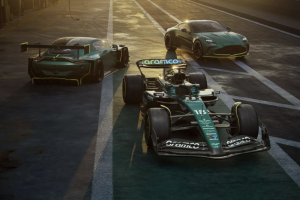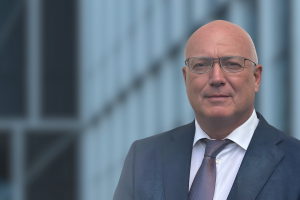Man in the know: Lord Kumar Bhattacharyya

THE TERM ‘knowledge transfer partnerships’ was almost unknown outside the hallowed halls of a few universities until just a few years ago.
But now the phrase has come to stand for the kind of practical collaboration between academia and industry that the government says is critical for the rebirth of the UK economy – and a veteran West Midlands academic can claim the credit for inventing the concept.
If anyone can be described as the ‘father’ of KTP, it is the founder of Warwick Manufacturing Group, Lord Kumar Bhattacharyya.
Sometimes mistaken for ‘glorified work experience’ a typical KTP programme involves students and often research academics being ’embedded’ in a business with a brief to help the organisation tackle a specific problem. This could be technical – helping a manufacturers develop a new process – strategic, financial or managerial.
The university comes away with better-equipped students, and often ground-breaking, but real-world-tested research, while the business gets the benefit of considerable brain-power to help solve its problem.
Larger-than-life polymath Bhattacharyya founded WMG in 1980. It now has 220 staff, and more than 24,000 individuals have gone through, with over 6,000 Masters degrees awarded and the close involvement of 500 UK companies.
His contribution to the academic and business communities of the West Midlands has recently been recognised with a Lifetime Achievement Award at the Midlands Business Awards.
WMG has teaching and research centres in Hong Kong, India, Singapore, Malaysia and Thailand and provides expert advice to many overseas governments and companies.
‘Lord B’ as he is sometimes called has advised governments of all hues – from Thacther to Blair and Brown – on industrial policy, and his guiding hand has been credited with encouraging close friend Ratan TaTA TO BUY Jaguar Land Rover in 2008.
But one achievement Lord Bhattacharyya seems particularly proud of is the creation of KTPs.
Today WMG researchers are using digital technologies to train surgeons via virtual surgery, and to create software that will help combat child obesity.
They are working with new technology and media companies to develop “real virtuality” – with applications ranging from serious gaming to architecture and low cost house building.
And they are researching low carbon with leading car companies in a bid to produce the vehicles of the future.
“Yet we at WMG still feel like the exception, when we should be the norm,” noted Lord Bhattacharyya.
“WMG has been a vital bridge between industry and academic research teaching, bringing significant benefits to both. It has also been a bridge that has connected UK industry and research with global thinking and innovation.”
In recognising Lord Bhattacharyya’s contribution, Professor Nigel Thrift, Vice Chancellor of the University of Warwick, said: “(He) has been a pioneer of partnership between manufacturing and university research and teaching.
“Many jobs have been created, and the boundaries of scientific knowledge have been pushed back, by the strength of his advocacy of such partnerships and his effectiveness in actually delivering such partnerships. His leadership in this field has benefited our region and continues to have a global impact.”
Since 1997 WMG has generated more than £80 million worth of income for the University of Warwick, and the industrial partnerships created through the programmes have enabled the Group to develop into a major industry focussed research centre.
It has had significant impact at UK regional, national and international levels, examples respectively being the Premium Automotive Skills programme, managers’ training for Network Rail and training for senior managers in Chinese state-owned enterprises.
The Group has diversified into a wide range of sectors from its initial focus on automotive and aerospace – financial services (RBS Group), mining (UK Coal), pharmaceutical (GSK) and house building (Westbury Homes).
It recently opened a £50 million Digital Laboratory.
And it has been hailed as a role model for the future of scientific research by Business Secretary Vince Cable.
Speaking a few months ago at Queen Mary University of London, he praised WMG as “outstanding”.
He said: “I recently went to Professor Bhattacharyya’s outstanding centre at Warwick and the whole point about his centre is innovation depends on lateral thinking between apparently different disciplines.”
And he singled out Tata’s operations in the West Midlands as a company which had been attracted to invest here because the UK was home to some of the leading universities in the world and had such a strong research base.









